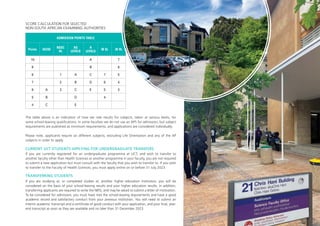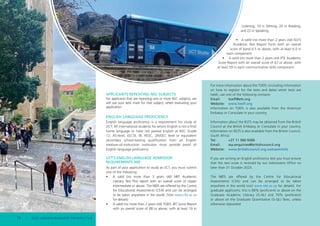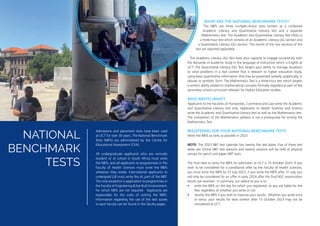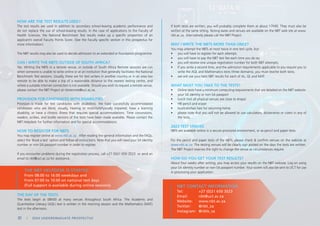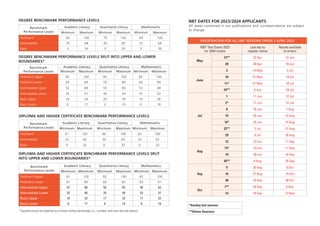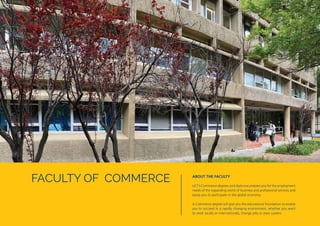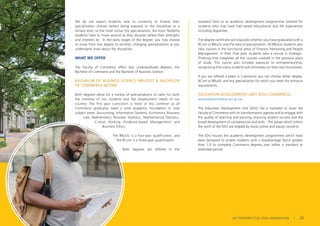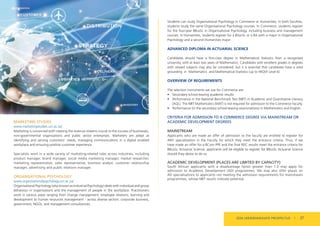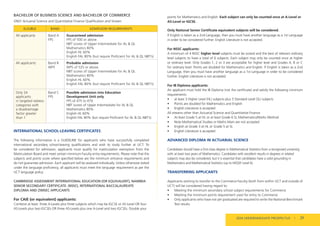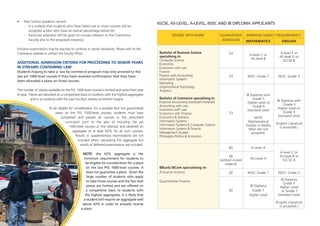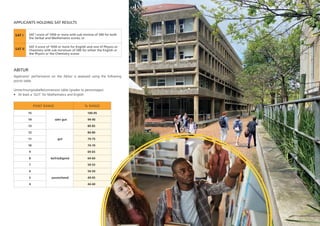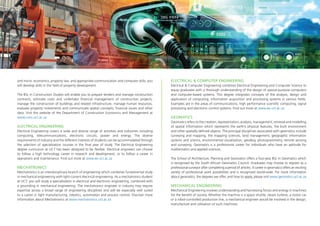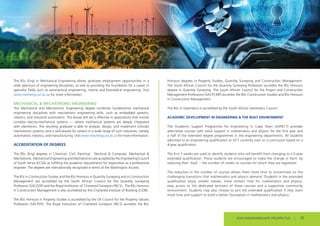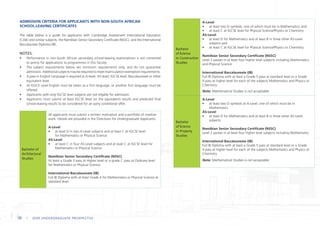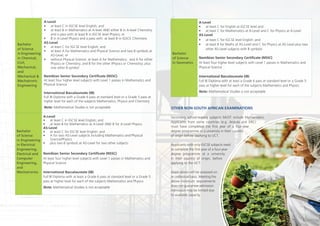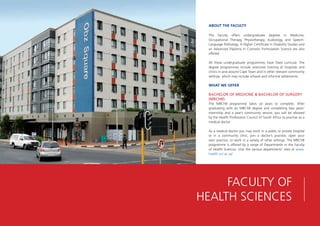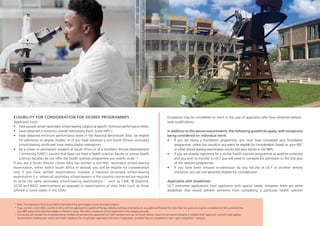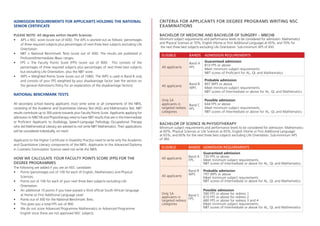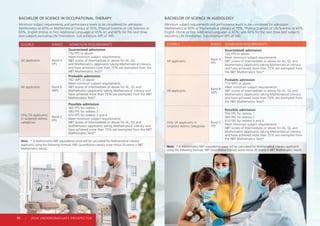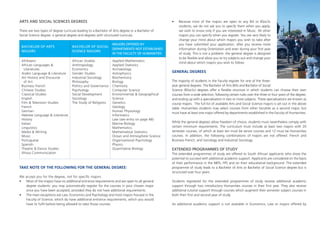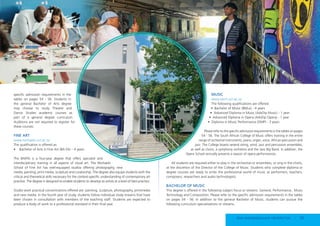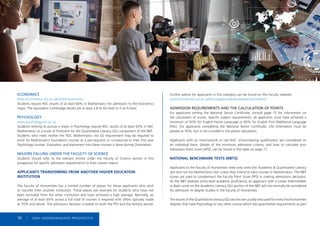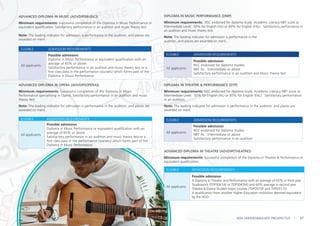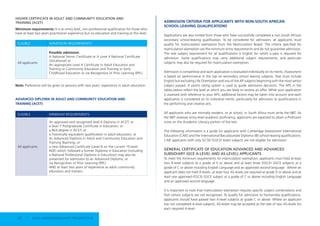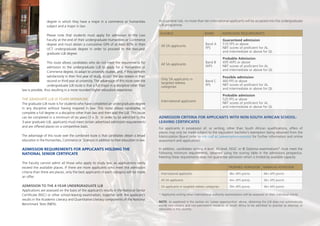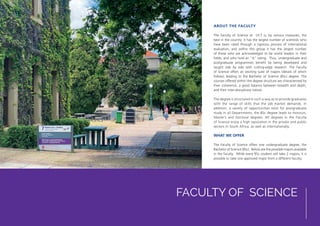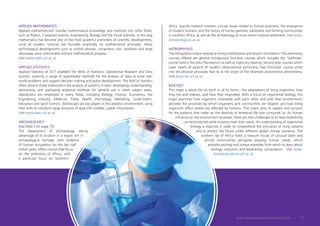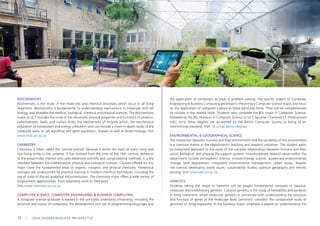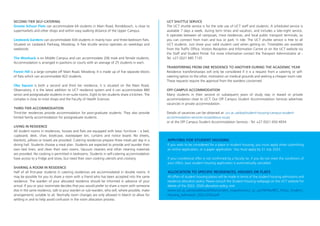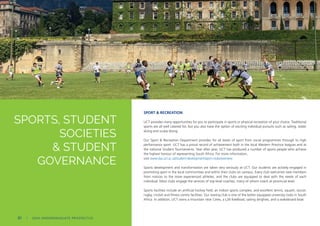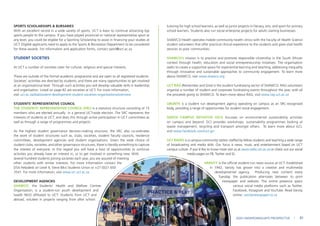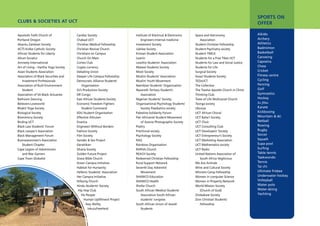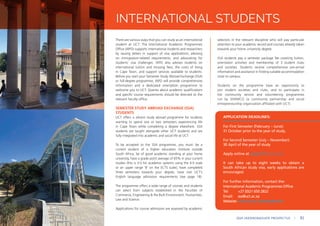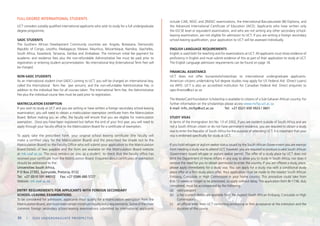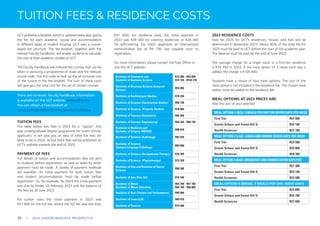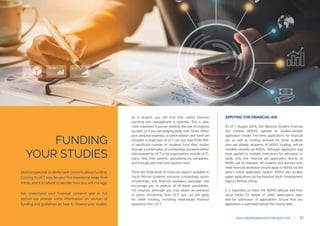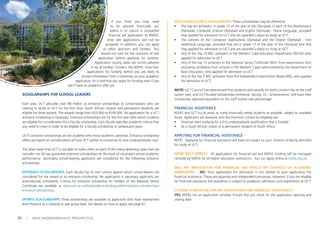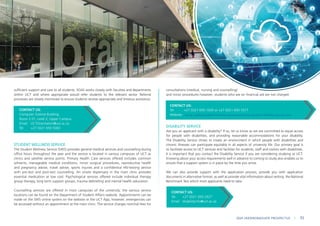This document provides information for prospective undergraduate students at the University of Cape Town (UCT) for the 2024 academic year. It begins with a message from the Vice-Chancellor welcoming students to UCT and outlining its commitment to social justice. The document then provides an overview of UCT's six faculties and the qualifications offered. It also includes information on student life, housing, sports, international students, tuition fees, funding options, and contact details.
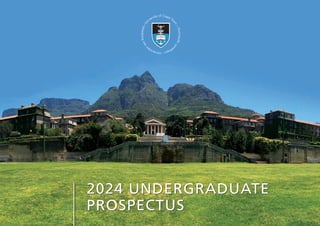
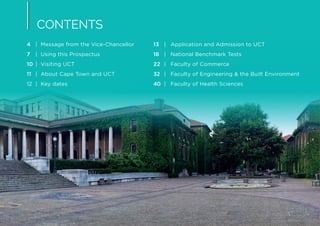



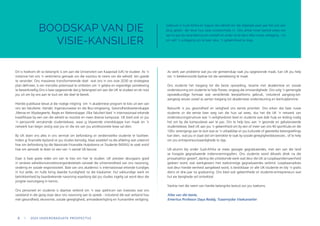



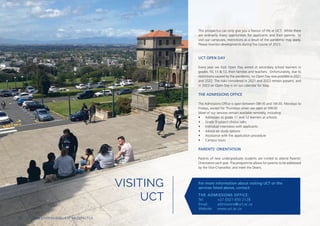
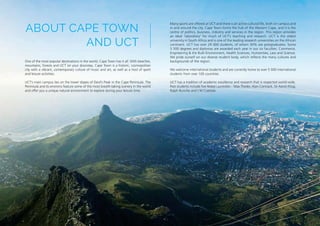
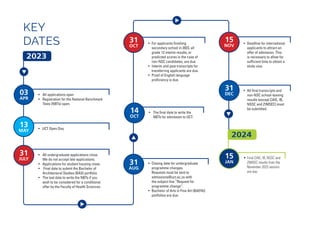

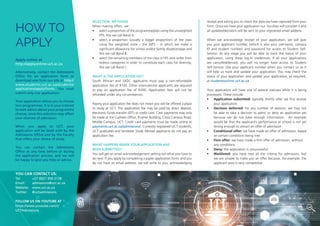

![EXAMPLES OF POINTS SCORE CALCULATIONS FOR NSC APPLICANTS
Note: Technical Mathematics and Technical Science may not be used as substitutes for Mathematics and Physical Sciences respectively.
Examples of points score calculations for NSC applicants
1. FACULTIES OF COMMERCE, ENGINEERING & THE BUILT
ENVIRONMENT, HUMANITIES AND LAW
In these faculties, the FPS is calculated out of 600.
English Home Language 75% = 75 pts
isiXhosa First Additional Language 70% = 70 pts
Mathematics 84% = 84 pts
Life Sciences 86% = 86 pts
Geography 79% = 79 pts
Accounting 69% = 69 pts
Life Orientation 80% = 0 pts
Total = 463/600
FPS = 463
Use the disadvantage factor to derive the weighted score:
for the purpose of this example the disadvantage factor is 10%.
Disadvantage factor = 10% (46)
WPS = 509 (463+46)
[for South African
applicants only]
2. FACULTY OF HEALTH SCIENCES
The FPS is calculated out of 900.
English Home Language 75% = 75 pts
isiXhosa First Additional Language 70% = 70 pts
Mathematics 84% = 84 pts
Life Sciences 86% = 86 pts
Physical Sciences 79% = 79 pts
Accounting 69% = 69 pts
Life Orientation 80% = 0 pts
APS = 463/600
NBT Scores of: AL: 55%
QL: 60%
MAT: 50%
Make a total 165/300, added to 463
FPS = 628/900
Use the disadvantage factor to derive the weighted score: for the purpose of this example
the disadvantage factor is 20%.
Add 20% as follows: Disadvantage factor = 20% x FPS = 20% x 628 = 125.6
WPS = 754 (628+125.6)
[for South African
applicants only]
An additional 10 points are added if you have passed a third official South African language
at Home or First Additional Language Level.
3. FACULTY OF SCIENCE
The FPS is calculated out of 800.
English Home Language 75% = 75 pts
isiXhosa First Additional Language 70% = 70 pts
Mathematics 84% = 84 pts
Physical Sciences 86% = 86 pts
Geography 79% = 79 pts
Accounting 69% = 69 pts
Life Orientation 80% = 0 pts
APS = 463/600
Scores for Mathematics and Physical Sciences are doubled; therefore, 170 (84+86)
is added to the APS:
FPS = 633 /800
Use the disadvantage factor to derive the weighted score: for the purpose of this example
the disadvantage factor is 0%.
Disadvantage factor = 0%
WPS = 633 (633+0)
[for South African
applicants only]
16 |](https://image.slidesharecdn.com/ugprospectus10-may-2024-240114212007-628d3bef/85/ug_prospectus_10-May-2024-pdf-16-320.jpg)
